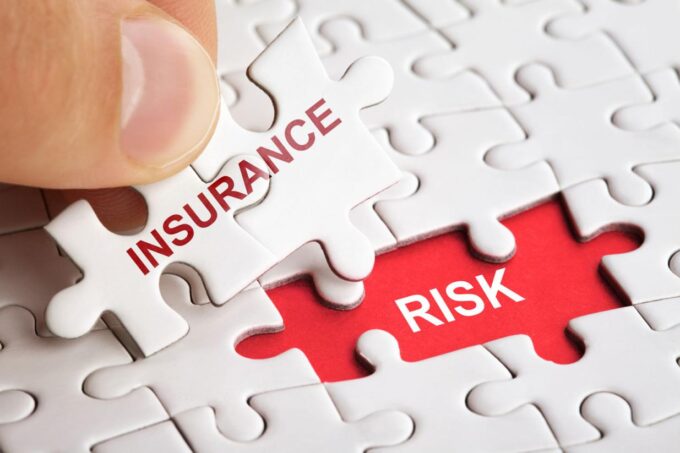In the ever-shifting landscape of Georgia’s corporate environment, shielding your enterprise is critical. Commercial Insurance GA transcends the mere safety net; it transforms into a strategic bulwark against unforeseen obstacles that could imperil the painstakingly accrued triumphs of your business. Yet, delving into the complexities of commercial insurance can evolve into a formidable undertaking, demanding a profound grasp of the intricacies entailed. It becomes essential to ask the proper questions if you want to make sure that you make well-informed judgments and successfully strengthen your company.
This guide will examine the four crucial inquiries that any Georgian company owner should make while looking for commercial insurance. Our mission is to endow you with the refinement requisite to procure the fitting coverage, erecting a robust defense against potential pitfalls lurking in the ever-mutating corporate terrain. Let us embark on this journey to give you the insight indispensable for safeguarding your business and guaranteeing its ascendancy.
1. What Types of Coverage Does Commercial Insurance GA Offer?

The primary stride in securing all-encompassing Commercial Insurance GA is comprehending the protective alternatives available. Retail insurance is not a one-size-fits-all product; it is a range of carefully crafted products to address particular risks facing companies. The essential coverages usually include workers’ compensation, property, liability, and business interruption insurance.
Property insurance shields your tangible assets, encompassing buildings, stockpiles, and apparatus, from fire, pilferage, or natural catastrophes. In contrast, liability insurance protects your enterprise from legal entanglements arising from bodily harm, property impairment, or advertising misrepresentations. Business interruption insurance swoops in to underwrite lost revenue and operational expenditures in the event unforeseen circumstances compel a temporary cessation of business operations.
Workers’ compensation, an obligatory facet in Georgia, affords monetary sustenance to employees felled by occupational injuries, covering medical outlays and a segment of foregone wages. Beyond these, supplemental coverage alternatives may encompass professional liability, cyber liability, and commercial auto insurance, contingent upon your business’s complexion and needs.
By acquiring an exhaustive apprehension of the available coverage genres, you can fine-tune your insurance portfolio to align precisely with your business’s vulnerabilities and conceivable risks. This proactive approach ensures that you stand sufficiently shielded in adversarial circumstances.
2. How Much Commercial Insurance Coverage Does My Business Need?

Determining your enterprise’s precise amount of coverage constitutes a pivotal facet of the insurance acquisition process. While succumbing to the allure of minimalism to economize on premiums may be tempting, undervaluing your coverage requisites can expose your business to substantive fiscal hazards in the event of a claim.
Determine the proper coverage limits by evaluating the worth of your assets, such as real estate, supplies, and machinery. Consider any liability claims, projecting the cost of any court cases or damages your company could be liable for. A comprehensive assessment of the risks involved with your organization’s operations can help you determine the appropriate amount of coverage.
Additionally, communicate with your insurance company honestly and openly. Provide details about your company plan, expected growth, and any special features that might affect your risk profile. An expert insurer can advise on the ideal coverage amounts based on your situation.
Remember that the insurance price is relatively small compared to the possible damages your company may suffer if it does not have enough protection. Achieving a balance between coverage and cost is crucial, but putting comprehensive protection first guarantees that your company can withstand unanticipated obstacles.
3. Are There Any State-Specific Regulations Impacting Commercial Insurance in Georgia?

Purchasing business insurance requires navigating the regulatory environment, particularly in a state like Georgia, where unique needs and laws exist. Being aware of these state-specific details helps to guarantee that your insurance meets legal requirements and serves as a solid basis for compliance.
In Georgia, businesses confront a mandate to carry workers’ compensation insurance should their workforce tally three or more individuals, including part-time laborers. This coverage is meticulously crafted to shield employees by dispensing medical benefits and wage compensation for job-related injuries or illnesses.
Cognizance of these regulatory prerequisites assures adherence and insulates your business from plausible legal ramifications. Non-compliance with state statutes can culminate in penalties, fines, or even legal reprisals, imperiling your enterprise’s fiscal robustness and standing.
Seeking advice from an experienced insurance expert or using Georgia Department of Insurance materials will help you remain current on the most recent changes to Georgia’s business insurance laws. Being proactive and up-to-date with developments puts your company in a position to make decisions that align with your risk profile and regulatory requirements.
4. How Can I Mitigate Risks to Reduce Commercial Insurance Premiums?

While insurance emerges as an indispensable instrument for risk governance, proactively mitigating hazards within your business can positively reverberate on your commercial insurance premiums. Businesses that use risk reduction measures are frequently rewarded by their insurers with more favorable coverage conditions and cheaper rates.
Start by thoroughly evaluating the risks associated with your company’s activities. To lessen the likelihood of accidents or incidents, recognize potential threats, implement safety measures, and provide funding for educational programs. For instance, if your company offers transportation services, putting driver safety initiatives in place can lower the likelihood of collisions, raising the cost of your commercial vehicle insurance.
Additionally, fortify your business premises with commensurate security measures to deter theft or vandalism. Deploy fire suppression systems and adhere to building code requisites to lessen the risk of property damage. Adopting proactive measures to foster a safe and secure environment safeguards your business and communicates your dedication to risk management to insurers.
Work with your insurance company to comprehend the precise risk-reduction strategies that might lower your rates. Insurance companies may advise using industry-specific best practices, which will eventually build a cooperative relationship to protect your company and maximize your insurance investment.
Summary
Navigating the commercial insurance market requires a calculated and well-informed strategy in Georgia. You may enable your company to make wise insurance selections by posing these four crucial questions: comprehending coverage possibilities, figuring out proper coverage amounts, keeping up with state-specific rules, and actively minimizing risks.
Commercial Insurance GA transcends being a mere defensive maneuver; it translates into a proactive investment in the durability and tenacity of your business. As you embark on this expedition, remember that an enlightened and diligent approach to commercial insurance constitutes the foundation for securing the tranquility that enables your business to flourish amid challenges.









